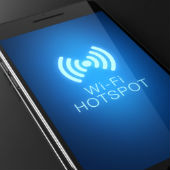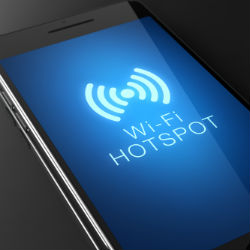 The US Federal Communications Commission (FCC) didn’t mince its words: hotels that block Wi-Fi are breaking the law.
The US Federal Communications Commission (FCC) didn’t mince its words: hotels that block Wi-Fi are breaking the law.
From a warning posted on Tuesday:
In the 21st Century, Wi-Fi represents an essential on-ramp to the internet. Personal Wi-Fi networks, or "hotspots", are an important way that consumers connect to the internet. Willful or malicious interference with Wi-Fi hotspots is illegal.
In fact, blocking of guests’ personal hotspots violates Section 333 of the Communications Act, according to the FCC.
In spite of the illegality of such blocking, the Commission’s Enforcement Bureau has seen a “disturbing trend” in which hotels and other commercial establishments block wireless consumers from using personal Wi-Fi hotspots on their premises.
The Bureau has been investigating and taking action against Wi-Fi blocking, most notably with Marriott International Inc.
The hotel chain was investigated in 2014 and then slapped with a $600,000 fine (around £400,000).
But that didn’t stop it from waging a legal and PR battle to get permission to block personal hotspots in its conference and convention areas.
Earlier this month, Marriott threw in the towel on the blocking, though it said it hadn’t given up trying to get the FCC’s blessing on blocking in cases of “clear cybersecurity risk”.
In spite of Marriott’s claims about cybersecurity, the FCC said on Tuesday that the hotel chain had admitted that blocked customers hadn’t posed a security threat to its network.
The “we’re doing it for their own good” argument was hard to swallow, in light of how much Marriott was making from selling internet “on-ramps” to the guests whose internet tires it had slashed: namely, between $250 to $1,000 per device to get onto the internet at one of its properties, according to the Commission.
Or, in the words of one reader,
Security my a**......
The FCC says it will “aggressively” investigate and act upon “unlawful intentional interference”.
Stay tuned: it says its Enforcement Bureau is investigating several complaints.
Hotels, a word to the wise: stop blocking the on-ramps, lest the FCC steamroll you.
Image of Wi-Fi hotspot courtesy of Shutterstock.
